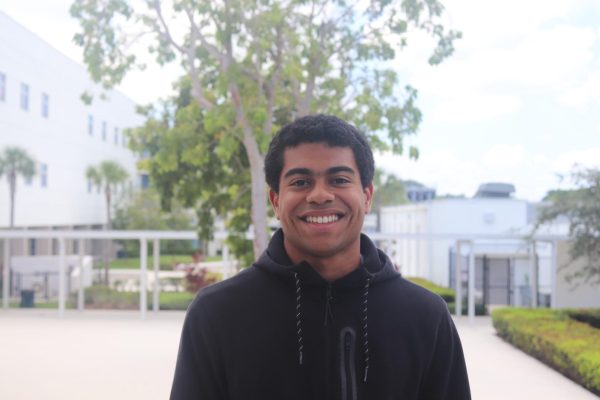A motorcade of black SUVs entered a Georgia jail guarded by several police officers and surrounded by journalists and television cameras on Aug. 24. Former President Donald Trump had arrived for his fourth arrest.
For the first time in March, Trump was indicted with hush-money payments to an adult film star in 2016. Three months later, in June, the second indictment regarding classified documents came. A third indictment soon followed: four federal charges of allegedly attempting to overturn the results of the 2020 election related to the Jan. 6 insurrection. The fourth, and last, indictment came in Fulton County, Ga., related to Trump’s alleged efforts to overturn the 2020 presidential election.
This is a first in American history; never before has a former president been indicted. There is no precedent or direction on how to proceed.
Hush Money Case
In New York, Manhattan District Attorney Alvin Bragg presented evidence to a grand jury that indicted Trump on 34 counts of falsifying business records in the first degree of New York Penal Law 175.10. According to New York law, this offense is originally a misdemeanor, but the prosecutors believe Trump falsified the records with the intent of furthering a separate, underlying crime, making it a felony.
The underlying crime has not yet been revealed, but the prosecution will most likely argue that the payoff was an illegal contribution to Trump’s campaign.
Specifically, Trump was charged with the crime of falsifying business records in connection with a payoff to Stormy Daniels to avoid a possible sex scandal in the last weeks of his 2016 presidential campaign. Michael Cohen, Trump’s attorney, paid Daniels $130,000, which Trump reimbursed in the White House in a series of payments labeled as corporate legal expenses.
Similarly, model and actress Karen McDougal also accused Trump of paying her $150,000 to keep quiet about an affair from 2006. The prosecution will likely use this as evidence.
The trial has been scheduled for March 25, 2024. Trump has pleaded not guilty to all 34 charges.
Classified Documents Case
In the Southern District of Florida, Special Counsel Jack Smith leads the case against Trump for taking highly sensitive national security documents with him when he left the White House. Additionally, Trump allegedly showed the documents to unauthorized individuals on at least two occasions.
“We have various forms of photographs, and we have testimony from eyewitnesses who can attest that Trump had those documents; he held on to them even after he was informed he had to return them. And then there’s also the security footage that shows that there were attempts to obstruct justice. The other thing that’s important about the classified documents case, is that we also have Trump’s own words during an interview, supposedly holding up one of the documents in question, stating that he knew the documents are classified, that he never classified them, that he understood that they should have been classified and that he probably shouldn’t keep them,” Florida International University professor of Political Science and International Relations Clement Fatovic said.
Trump was charged with 32 felony counts of willful retention of national defense information in violation of the Espionage Act, six felony counts of obstruction-related crimes under 18 U.S.C. 1512 and 18 U.S.C. 1519 and two felony accounts of false statements under 18 U.S.C. 1001.
Trump and his aide, Walt Nuata, have pleaded not guilty to all charges. The trial has been set for May 2024.
Election Interference
Smith also led the effort to indict Trump in Washington D.C. on charges related to the former president’s alleged efforts to overturn the 2020 election. The prosecution presented evidence to a grand jury, demonstrating that Trump urged Republican officials to change the results in the states in which Biden won. Prosecutors also accuse Trump of assembling false slates of electors to vote for him in the electoral college and pressuring former Vice President Mike Pence to invalidate the results of the election.
The charges against Trump include a count of conspiracy to defraud the U.S. and conspiracy against rights — specifically depriving citizens of the right to have their votes counted. The documents reveal six co-conspirators, but their identity is unknown.
The trial has been set for March 24, 2024, the day before Super Tuesday, when 14 states will cast their primary ballots.
Trump has pleaded not guilty to all charges.
Fulton County
In Fulton County, Ga., district attorney Fani Willis presented evidence to a grand jury that indicted Trump on 13 charges related to his alleged attempt to overturn the 2020 presidential election.
One of those charges violates the Racketeering Influenced and Corrupt Organization Act, also known as RICO. This means prosecutors will have Trump and his 18 other co-defendants on trial concurrently for the same criminal conspiracy. Trump has pleaded not guilty on all charges, and as allowed by Georgia law, has waived an in-court appearance.
This case is a state case, just like the New York case, meaning if Trump wins the 2024 presidential election he could not pardon himself if convicted. Georgia law also states the governor cannot pardon convicted felons unilaterally.
“So even if the governor in Georgia were inclined to pardon Trump, he couldn’t. It’s only after several years have passed. So if he were to be convicted there, that conviction would stand and there’d be nothing he could do about that. And he could very well be serving time in prison before he can ever be pardoned. Presidential pardon power only applies to federal law, not state law,” Fatovic said.
If Trump were to be convicted of any crimes, this would be the first time a past president becomes a felon in American history.
“In the United States, apparently the expectation is that you can lose your right to vote if convicted of a felony, but you can still run for president,” assistant professor at the Department of Political Science at the University of Miami Matthew David Nelsen said.
These four forthcoming trials mean Trump’s presidential campaign will have to work around his legal troubles. For instance, the Washington D.C. trial will commence the day before Super Tuesday — the day 14 states will vote for their preferred Republican candidate for the nomination.
“The indictment court date being held on March 4, the day before Super Tuesday, will certainly introduce logistical challenges for the Trump campaign because it will likely create scheduling conflicts where they may have to appear in court rather than at a political rally in a primary state. So I think it may prevent Donald Trump from doing the large campaign rallies that he’s known to love to do, but I don’t think anything will change significantly in the next few months to change the outcome of the Republican primary. I’m very, very confident that Donald Trump will be the Republican Party’s nominee for president,” Nelsen said
Nelsen referenced an August poll released by CBS News which revealed that Trump had 62% support among Republicans. The poll reported Florida Gov. Ron Desantis in second place with 16% support among Republicans.
Judge Scott McAfee, overseeing the Georgia trial, approved television broadcasting and live streaming during the trial. Gregory Kroger, Professor of Political Science at the University of Miami, says the fact that the public will see Trump in the courtroom will likely hurt his campaign.
“I think it’s bad publicity, it’ll highlight the publicity of that trial, and in particular it’ll draw attention to the actual facts of what happened and not the characterization that Donald Trump and his supporters put out to the American public,” Kroger said. “If the trial is publicized, then everyone will have to cover it across the political spectrum, and so that information will get out to both opponents and supporters of Donald Trump. More than on most of these controversies, they’ll actually be grappling with the same set of facts, and those facts will be very detailed and pertain to the possibly illegal behavior of Donald Trump and the possible abuses of Office that are levied against him.”
On social media, Trump continually criticizes the prosecutors involved in these cases, the judges overseeing the trials and possible witnesses in the trials. Similar rhetoric preceded the insurrection on Jan. 6, 2021 to attempt to overturn the 2020 presidential election. In August 2022, an armed man, motivated by a search for classified documents at Trump’s Mar-A-Lago residence, was shot and killed by law enforcement after attempting to forcibly enter a Federal Bureau of Investigation’s field office in Cincinnati, Ohio. In March, Trump made a post on social media cautioning that if he were charged there would be violent retaliation. In August, another armed man in Utah was shot and killed in a confrontation with the FBI, when federal agents raided his house after he allegedly threatened to kill President Joe Biden, Bragg and others. Kroger believes there is a risk of political violence resulting from these trials, but that it should not discourage the prosecutions.
“Donald Trump threatened that violence will happen, [and has welcomed] violence by his supporters. So far, it hasn’t materialized. When the first charges were announced against him, there were no protests in the streets. When he was arraigned in New York for the first time, there was barely anybody there. So far the reaction has been less than our worst fears… But I think as we proceed on this course, especially if he actually gets convicted, someone may take it upon themselves to react. So that’s a possibility. But I don’t think that should deter us from moving forward with these cases in finding out if they’re true or not,” Kroger said.







